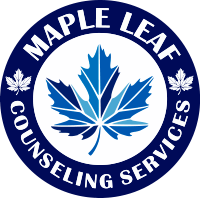Trauma refers to the emotional and psychological response to a distressing event or series of experiences that exceed an individual’s ability to cope. It can manifest in various ways, including anxiety, depression, and emotional numbness, often leading to long-lasting effects on a person’s mental health and overall well-being. Understanding trauma is crucial for promoting healing and resilience in those who have experienced it.
Finding the right trauma therapist can make all the difference in your recovery. By asking the right questions and understanding what to expect, you can take control of your healing process and start your journey toward a healthier, happier life. Call 989.220.3060 or contact Maple Leaf Counseling to learn more about trauma therapy treatment and how we can help.
Understanding the Impact of Trauma
Trauma is far more common than you might think, with the vast majority (70%) of people experiencing at least one traumatic event during their lifetimes.1 Trauma can deeply affect a person’s life, often in ways that are not immediately visible. It can stem from various experiences, such as accidents, violence, or natural disasters. Understanding the impact of trauma is crucial to recognizing the need for specialized trauma therapy services.
Common symptoms of trauma include:
- Anxiety – Constant feelings of worry or fear
- Depression – Persistent sadness and loss of interest in activities
- Flashbacks – Reliving traumatic events as if they are happening again
- Insomnia – Difficulty falling or staying asleep
- Avoidance – Steering clear of reminders of the traumatic event
- Hypervigilance – Being overly aware of surroundings and potential threats
These symptoms can make everyday life challenging. They may affect your ability to work, maintain relationships, and enjoy activities you once loved. Recognizing these signs is the first step toward healing.
Finding the Right Trauma Therapist: Key Questions to Ask
Finding a therapist who specializes in trauma is essential for effective treatment. But how do you know if a therapist is right for you? Here are some key questions to ask when finding a trauma therapist to ensure they meet your needs.
Are You Trained in Trauma Therapy?
This is one of the most crucial questions to ask when finding a trauma therapist. Therapists trained specifically in trauma understand the complexities of post-traumatic stress disorder (PTSD) and other trauma-related conditions.
What Therapy Techniques Do You Use?
Different therapists use various methods to treat trauma. Some common techniques include cognitive-behavioral therapy (CBT), eye movement desensitization and reprocessing (EMDR), and somatic experiencing. Knowing their approach helps you understand the therapy process.
Do You Have Experience with My Type of Trauma?
Trauma comes in many forms, and a therapist experienced with your specific type of trauma can offer more tailored treatment. For example, if you have experienced military combat, a therapist who has worked with veterans may be more knowledgeable about your needs.
What Should I Expect During Sessions?
Understanding what happens during therapy sessions can ease anxiety about starting treatment. Ask about the structure of sessions, the types of activities involved, and any homework assignments you might receive.
How Do You Measure Progress?
Knowing how progress is measured can help you stay motivated and understand your healing process. Therapists might use regular evaluations, self-reporting, or specific milestones to gauge progress.
What Are Your Credentials?
Check the therapist’s credentials to ensure they are licensed and certified in trauma therapy services. This information is often reassuring and can build trust in their expertise.
How Do You Handle Confidentiality?
Confidentiality is critical in therapy. Ask how your information will be kept private and what the legal limits of confidentiality are. Understanding these policies can make you feel safer in sharing personal experiences.
Do You Offer Teletherapy?
Teletherapy is becoming more common, especially in the wake of the COVID-19 pandemic. If in-person sessions are difficult for you, ask if the therapist offers online sessions as an alternative.
What Are Your Fees?
Understanding the cost of therapy and whether your insurance is accepted can prevent financial stress. Ask about session fees, payment plans, and any available sliding scale options.
Can I Speak to a Previous Client?
While therapists cannot disclose confidential client information, some may provide anonymized testimonials or refer you to reviews. Hearing about others’ positive experiences can boost your confidence in their services.
The right support can significantly enhance recovery. By asking these important questions, you empower yourself to make informed decisions and cultivate a therapeutic relationship that fosters resilience and growth.
What You Can Expect from Our Trauma Therapy Program in Michigan
At Maple Leaf Counseling, we offer comprehensive trauma therapy services tailored to your unique needs. Our program in Michigan is designed to help you heal and regain control of your life. You can expect:
- Personalized treatment plans – We create individualized treatment plans based on your specific trauma and symptoms. Our goal is to provide the most effective therapy for your situation, ensuring you receive the best possible care.
- Experienced therapists – Our therapists are highly trained and experienced in various trauma therapy techniques. They are committed to helping you through each step of your healing journey.
- Supportive environment – We believe in creating a comfortable and supportive environment for our clients. Our therapeutic setting is designed to make you feel welcomed and secure, allowing you to open up and work through your trauma.
Our trauma therapy program aims to empower you on your healing journey, providing the tools and support needed to navigate the challenges of trauma. With the right guidance, you can find hope, resilience, and a path toward a brighter future.
Overcome Trauma at Maple Leaf Counseling — Contact Us Today
Taking the first step toward healing can be daunting, but you do not have to do it alone. At Maple Leaf Counseling, we are here to support you every step of the way. If you are ready to overcome your trauma and start living your life to the fullest, call 989.220.3060 or contact us online today to schedule a consultation.
SOURCE:




